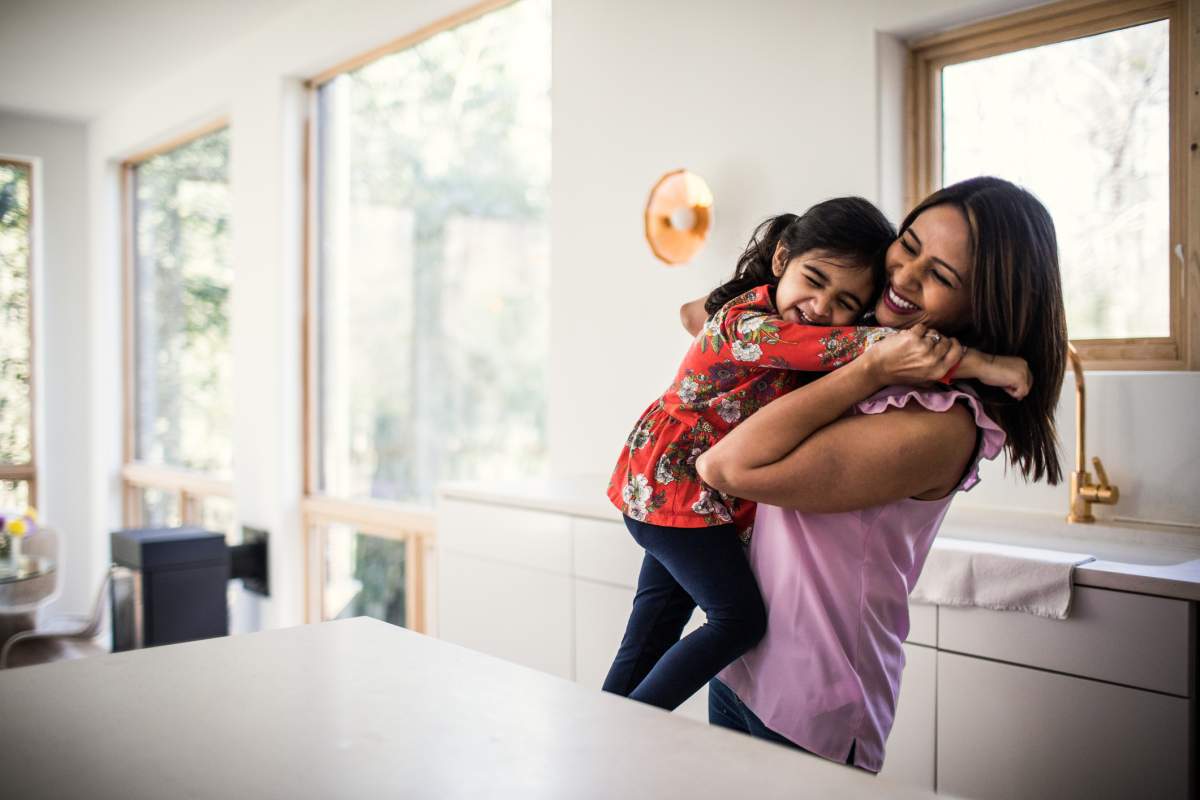Parents are changing the way they talk to their kids about cannabis post-legalization as weed has become a more visible part of daily life across the country.

Ashleigh Brown, founder of SheCann, which allows Canadian women to share their experiences using medical cannabis, said talking to kids about marijuana shouldn’t be a one-time “talk” — it should be a continuous dialogue.
“Kids are smart and they’re watching everything and everyone,” Brown told an audience at a “Women & Weed” event in Toronto on Saturday. “The conversations should be about authenticity and honesty.”
WATCH: One-third of pregnant women think cannabis is okay to use during pregnancy, review says

Brown said she began using medical cannabis in 2016, so her young kids thought pot was strictly a medicine. She said she began to educate her 14 and 10-year-old daughters about how people use cannabis for many reasons.
Brown and April Pride, founder of cannabis lifestyle brand Van der Pop, said it’s important to have these conversations with children, as it is inevitable that weed will be around them at parties and on the street.
They said children growing up post-legalization need to be educated the same way they would about alcohol, including by stressing that pot is only for adults.
Brown and Pride said they hide and lock away their stash from their children, but they believe avoiding the conversation about cannabis use encourages stigma and doesn’t help their kids with making their own decisions.

Get daily National news
WATCH: Spike in cannabis poisoning in kids a concern for doctors

“There is a difference between discretion and hiding,” said Brown. “Hiding encourages stigma because it is something that you keep from people. Having discretion is about responsible use.”
Brown said she takes a harm reduction approach when talking to her daughters, using resources from Canadian Students for Sensible Drug Policy. The group views problematic drug use as a health issue rather than a criminal justice issue and advocates for harm reduction support.
Brown said she talks to her kids about why and how people use cannabis and why she stores it away from reach.
- Canadian immigration officers investigating hundreds identified by extortion task force
- Carney unveils ‘Buy Canadian’ defence plan, says security can’t be a ‘hostage’
- Inflation cooled to 2.3% in January but food prices up again: StatCan
- Ottawa expects Ukrainian emergency visa holders to return after war ends
“It’s maybe not that I don’t trust my own kids. I keep it locked and away from them so that they understand that it’s an adult-use product.”
Sabine Dolby, 56, said she used to hide her stash from her children when they were younger, but now that they are adults — aged 24 and 30 — she said they all smoke together. Dolby said she didn’t smoke often when her kids were younger and she didn’t talk them much about cannabis, but now that she’s a regular user and cannabis is legal, she said she’s relieved not to hide it from them.
“I just asked myself, ‘I know my adult children are smoking it, so why am I the one hiding it?’ We’re all adults here,” said Dolby, adding that she smokes cannabis for her aches and pains and to help her sleep.
Pride said she also talks to her two young sons about the dangers of cannabis use and how people react differently to weed.
WATCH: How to talk to your kids about cannabis becoming legal

The Canadian Centre on Substance Use and Addiction states that consuming cannabis regularly during adolescence can cause a loss of concentration and memory and jumbled thinking.
The centre also states in a 2015 report that regular cannabis use is associated with experiencing psychotic symptoms and developing schizophrenia, especially among those who have a family history of it.
The centre also states that connections between cannabis use and other mental illnesses, especially anxiety, are less clear and that more research needs to be done.
Pride said while more research needs to be done on the effects of cannabis — particularly its effects on brains that aren’t fully developed — she said having the discussions using science and logic is best.
“There are downsides to (cannabis use), but if we don’t talk about it, how are we really going to know?” she said.
Brown said parents can never guarantee that their kids are going to stay sober, but if they are educated on the effects of cannabis, they can make well-informed decisions.
“My job is to be a responsible user and store it responsibly and have these conversations,” Brown said. “I want to have a dialogue with my kids about this.”








Comments
Want to discuss? Please read our Commenting Policy first.